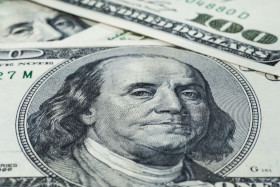The US dollar is holding steady to finish the trading week as investors comb through the worse-than-expected retail sales report for April. The greenbackâs endurance was further tested on bleak industrial and manufacturing numbers, lending credence to the Federal Reserveâs gloomy assessment that the US economyâs road to recovery will be a long and slow one. So, why is the buck not plummeting on Friday?
According to the US Census Bureau, April retail sales tumbled 16.4%, higher than the market forecast of a 12% decrease. The annualized rate is down 21.6%. This is the sharpest decline in the retail sector as businesses closed their doors and consumers were forced to stay home. The entire industry reported contractions: apparel (-78.8%), electronics and appliances (-60.06%), furniture (-58.7%), food services (-29.5%), gasoline stations (-28.8%), food and beverage stores (-13.3%).
But there was an eye-popping component of the report: non-store retail. Last month, the ecommerce industry posted an 8.6% gain as many retailers recorded swelling online sales, including Amazon, Best Buy, Overstock.com, Shopify, Target, and Wayfair.
Industrial production slumped 11.2% in April, slightly better than the 11.5% projection. This is the biggest decrease in the century-old index due to factory activity either shutting down or suspended. Manufacturing output also slipped 13.7%, the steepest one-month drop on record, led by a 70% crash in motor vehicles and parts. The median estimate called for a 13% decrease.
Capacity utilization fell from 73.2% to 64.9%, while business inventories rose from -0.5% to -0.2%. The New York Empire State Manufacturing Index rebounded this month after cratering to an all-time low. In May, the index rose to -48.5, up from the -78.2 in April. Employment levels and the average workweek continued their descent, but firms are growing optimistic that market conditions could improve by the fall.
On the labor front, the number of job openings tumbled by 813,000 to 6.191 million in March, which was the lowest level since May 2017. Most experts anticipate a bigger decline in April. On Thursday, initial jobless claims clocked in at a two-month low of 2.981 million, suggesting that the job-loss trend has already peaked.
The US Dollar Index, which measures the greenback against a basket of currencies, was flat at 100.45. The index is up 0.72% this week, adding to its year-to-date gain to 4.21%. The buck has been strengthening on its conventional safe-haven status as investors continue to park a considerable portion of their money in cash.
The USD/CAD currency pair advanced 0.43% to 1.4111, from an opening of 1.4056, at 17:34 GMT on Friday. The EUR/USD edged up 0.03% to 1.0810, from an opening 1.0806.
If you have any questions, comments, or opinions regarding the US Dollar, feel free to post them using the commentary form below.
US Dollar Holds Steady As Retail Sales Crash Worse Than Expected in April
